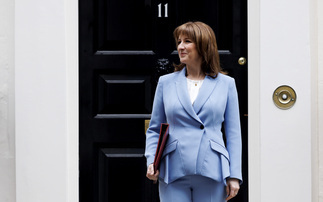The G20 yesterday promised 'strong and effective' climate action, despite opposition from Australia - BusinessGreen looks at the key implications of the latest climate commitments
1. The US-China Climate Pact is already having a positive impact
The US and China cleverly pre-empted a G20 Summit where the Australian hosts were attempting to relegate climate change to the margins by announcing one of the most important bilateral agreements in years and arguably the biggest leap forward for global efforts to tackle climate change since the 2010 Cancun Summit put the UN negotiations back on track.
Presidents Obama and Xi signalled last week they hoped the agreement would provide momentum to the UN talks and increase pressure on other nations to deliver bold emission reduction pledges - the G20 Summit in Brisbane proved their plan was already being realised.
Obama left the summit declaring that if the US and China can do it there were now "no excuses" for other nations not to announce their own emission reduction targets. He also emerged victorious in a tussle with Australian Prime Minister Tony Abbott, reportedly insisting the G20's final communique included a call for nations to announce their emissions targets early next year and rejecting the argument he will not be able to get his own emissions targets through Congress (he doesn't need to). Expect to see plenty more pressure from the US and China on those major emitters yet to commit to clear post-2020 emissions targets.
2. Climate change funding is stepping up a gear
Obama also outmanoeuvred Abbott on the issue of climate funding, announcing the US would provide $3bn to the UN's new Green Climate Fund (GCF) and securing a mention for the fund in the final text. Japan quickly followed with a pledge of $1.5bn and this week's latest UN meeting in Bonn is expected to see the UK, Germany and France each come forward with $1bn. It has taken much longer than expected but the fund is starting to mobilise and officials are confident the $10bn goal for this year could be met.
There are caveats surrounding this good news. It has been tough to secure $10bn of climate funding, even if it represents just a fraction of the $100bn that is meant to be available each year from 2020. Moreover, big questions remain about how the money should be spent and it seems likely some industrialised nations will continue to resist the GCF plan. Abbott did record one modest victory in ensuring the text refers to climate funding for initiatives "such as the Green Climate Fund" leaving the door open for Australia to pursue its own strategy.
That said, $10bn is not to be sniffed at and it represents significant further investment in emerging economies that are already providing some of the world's most exciting growth opportunities for clean technology providers.
3. Tony Abbott has never looked more isolated
Tony Abbott reportedly kicked off the discussions on energy and climate change by declaring he was "standing up for coal". By the end of a negotiating process that was likened by one official to "trench warfare" the final text contained not one mention of coal, but did declare "gas is an increasingly important energy source and we will work to improve the functioning of gas markets".
Moreover, Australian attempts to block or deprioritise commitments on the Green Climate Fund, the phasing out of fossil fuel subsidies, and the timing of new emission reduction pledges had failed. Abbott attempted to put a positive spin on the final agreement, but he was left looking even more isolated as Canadian Prime Minister Stephen Harper indicated that Canada could break with Australia and pay into the GCF after all.
Abbott had let it be known he was not interested in discussing climate change at this G20, instead he ended up being caught in a classic pincer movement with President Obama and Angela Merkel demanding more action, while David Cameron reportedly took a softer line, playing up the 'bromance' between the two centre right leaders to urge his Australian counterpart to back a stronger line on climate change.










